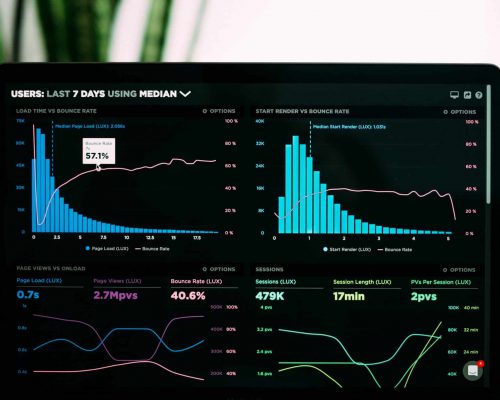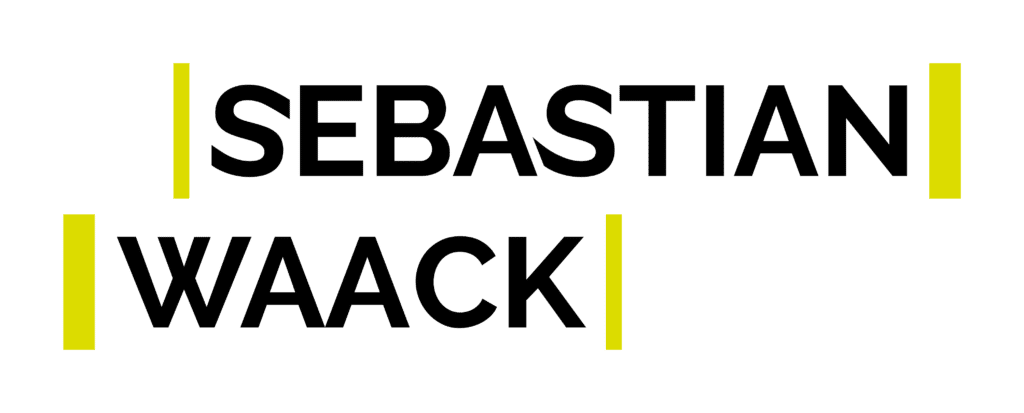Process documentation in the event industry
An overview of the processes in the area of process documentation
- Home
- >
- Event industry
- >
- Event industry Process documentation

The event industry is dynamic and detail-oriented. At events and in event technology, the lack of clear processes and documentation can lead to costly mistakes and misunderstandings.
But what if every technical instruction, every piece of equipment and every procedure were perfectly documented?
Sebastian Waack is the expert for this clarity. He knows the tricky aspects of the event & event technology industry and brings structure to chaos.
With sound process documentation, uncertainties are eliminated, everyone involved knows exactly what needs to be done and the event experience reaches new heights. Imagine all actions are synchronized and you can focus on what really matters: an impressive event. More precision, fewer complications.
Are you ready to give your event a professional polish?
Improvements through process documentation:
Documentation revolution:
Sebastian Waack helped a Hamburg event company to record its processes seamlessly and comprehensibly using an advanced digital documentation system.
Monitoring upgrade:
In Frankfurt, Sebastian implemented a comprehensive quality assurance system for an event technology company, allowing them to regularly check and constantly perfect their performance.
Measures master: Sebastian developed and established a robust corrective action system for a Düsseldorf event venue, which effectively rectifies quality deviations and ensures that errors do not occur again.
- Process documentation
- Digitization
- Inventory Management
- Employee development
- Quality management
Example solutions for process documentation in the event industry
Risk management in event technology:

Security at events:
In the world of events, things can sometimes go wrong. But thanks to Sebastian Waack, there is now a digital solution. He has developed a system that shows us where dangers could be lurking. This way we can avoid them in advance.
If something unforeseen happens, the system informs the team immediately. Then everyone can react quickly and ensure that everything runs smoothly again.
But the best thing is: Sebastian shows everyone how to use the system properly. This allows events to run safely and without problems.
In the world of stages and lights, a flawless event is the result of accurate risk assessment and careful planning. In the hectic event and event technology industry, however, unexpected obstacles can upset the finely tuned processes.
Sebastian Waack’s tailor-made digitization solutions prevent this problem. It integrates modern risk management systems that not only map the potential hazards of an event in real time, but also evaluate them automatically. These systems enable proactive action so that critical incidents are prevented before they can even occur.
Automated notifications keep teams informed at all times and allow them to react flexibly to any changes. In addition, Sebastian’s innovative solutions generate precise recommendations for action to address identified risks immediately.
But the key to success does not lie in the technology alone: Sebastian Waack provides extensive training to ensure that every member of the team knows exactly how to use the new systems optimally. The result is an event experience that shines through precision, safety and risk minimization.
Clear processes for perfect events:

Safety at events through clear instructions:
Sometimes people don’t know exactly what to do at events. This is often because there are no clear instructions. This can lead to errors.
Sebastian Waack has a solution for this. It has a simple system in which all the steps for an event can be written down. So everyone always knows what they need to do. The system is easy to understand and Sebastian also shows how it is best used.
Thanks to Sebastian, there are now fewer mistakes at events because everyone has the right instructions.
Anyone who has ever organized an event knows how many small details need to be considered. If these details are not properly recorded, errors can easily occur. In the event and event technology industry, it is often the case that processes are in your head, but not written down anywhere. This can lead to confusion and mistakes, especially when new team members join.
With Sebastian Waack’s digital solutions, this problem is a thing of the past. He has developed a system that helps companies to document their processes step by step. The great thing about it? The system is easy to use and ensures that all information is always up-to-date and easily accessible.
This means that if something changes or a team member needs a refresher, all the necessary information is just a click away. Sebastian also offers special training courses so that everyone knows how to use the system optimally.
In short: thanks to Sebastian Waack and his technology, documenting processes in the event industry is child’s play, which ultimately leads to smoother and more successful events.
Data utilization for optimal events:

Better events through data:
Event companies have a lot of information about their shows. But they often don’t know how they can use this information to improve.
Sebastian Waack helps here. He has a simple computer program that reads this information and says what can be done better. This allows organizers to see immediately what is going well and what is not.
Sebastian also shows everyone how to use the program correctly. This means that events can be made better and more exciting because you now know exactly where to start.
A successful event not only needs good equipment and talent, but also a lot of data. Event companies often collect a lot of information about their shows, but don’t make the best use of it. This means missed opportunities to improve the quality of events.
Sebastian Waack offers the solution with his digital tools. He has developed an advanced data analysis system that allows companies to scrutinize their collected data in depth. This makes it possible to recognize important patterns and trends that were previously invisible.
Real-time analyses allow event planners to make immediate adjustments, whether to the technology or the process. Sebastian also offers training courses to ensure that all employees know how to use the data tool optimally.
With Sebastian’s help, data is not only collected, but also used. This makes the event and event technology industry more innovative and effective, as it is constantly working towards potential improvements.
Expert training for first-class events:

Training for better events:
Events are not just about technology and ideas, but also about well-trained people. However, many employees do not know exactly what they are supposed to do because they have not been properly trained. This can lead to errors.
Sebastian Waack has a solution for this: he offers special training courses for employees in the event industry. With computers and real exercises, people learn everything they need to know.
In the end, everyone is better prepared and does their job well. Sebastian makes events better because people know what they are doing.
A successful event is not only the result of technical equipment and creative ideas, but also of competently trained staff. However, in the hectic event and event technology industry, there is often a lack of targeted training to ensure that every employee is up to date. This can lead to deficiencies in quality, dissatisfied customers and avoidable errors.
Sebastian Waack’s digital training solutions provide an elegant solution to this problem. He develops customized training programs that are precisely tailored to the needs of the employees. These programs use the latest technologies to impart knowledge in an interactive and practical way.
Sebastian not only relies on digital learning content, but also integrates practical exercises and feedback loops. This ensures that every employee not only acquires theoretical knowledge, but can also put it directly into practice.
The result? Well-trained teams that approach their tasks with confidence and competence. With Sebastian’s help, training does not become a chore, but a valuable tool that helps companies in the event industry to achieve top performance.
Other topics relating to the event industry
More details about the building blocks
Inventory Management
Inventory & supply chain management in the event industry: accuracy meets timing. Every piece of equipment counted, every delivery on time. Events without obstacles!
Digitization
Digitalization in event technology: innovation meets practice. Every technology networked, every sequence synchronized. Designing events in the digital age!
Quality management
Quality management in event technology: excellence meets performance. Every sound perfected, every light show flawless. Staging events at the highest level!
Employee development
Employee & personnel development in event technology: talent meets technology. Every progress is specifically promoted, every ability in focus. Teams that dominate the stage!
Contact: I am looking forward to your message

Your direct line to me.
I look forward to your message and will get back to you as soon as possible.
- Bremen & online via Zoom
- inquiry@sebastianwaack.de
- +49 (0) 176-414 862 64
FAQs
-
Process documentation in this industry refers to the systematic recording and documentation of workflows, technical processes and procedures used in the planning and execution of events.
-
Documenting processes ensures clarity and transparency. This promotes efficiency, reduces sources of error and makes it easier to train new employees.
-
Documented processes make it easier to identify and correct errors, as precise procedures and responsibilities are recorded.
-
It can be implemented in the form of written instructions, flowcharts, videos or digital tools and software solutions.
-
Ideally, team leaders or experienced employees who are familiar with the processes are responsible for the documentation.
-
It should be reviewed regularly and updated in the event of significant changes in processes or technologies.
-
Digital documentation is easier to access, can be updated quickly and is easy to distribute to relevant team members.
-
By establishing clear processes and safety procedures, the risk of errors and accidents can be reduced.
-
Thanks to clearly documented processes, everyone involved knows exactly which steps to follow and who is responsible for which tasks.
-
Experience and best practices should be collected regularly and included in the documentation in order to continuously improve the process.
-
The challenges include the time required, the need for constant updating and ensuring that all employees use and follow the documentation.
-
Through regular reviews, feedback from employees and adaptations to new technologies or industry standards.
-
Modern technologies can automate the documentation process, facilitate access and distribution and offer analysis tools for process optimization.
-
External parties should be given clear guidelines and instructions to help them find their way around the defined processes.
-
The follow-up and analysis of events can provide valuable insights for future events. Documenting these findings helps to establish best practices and make continuous improvements.
